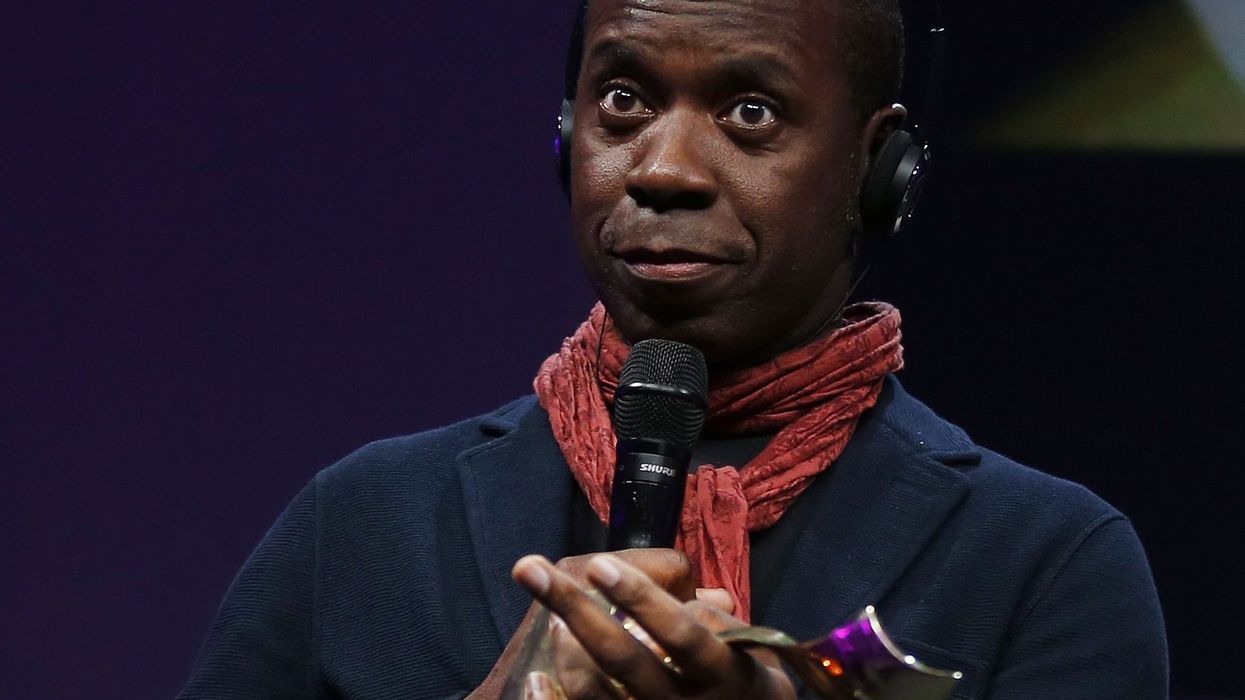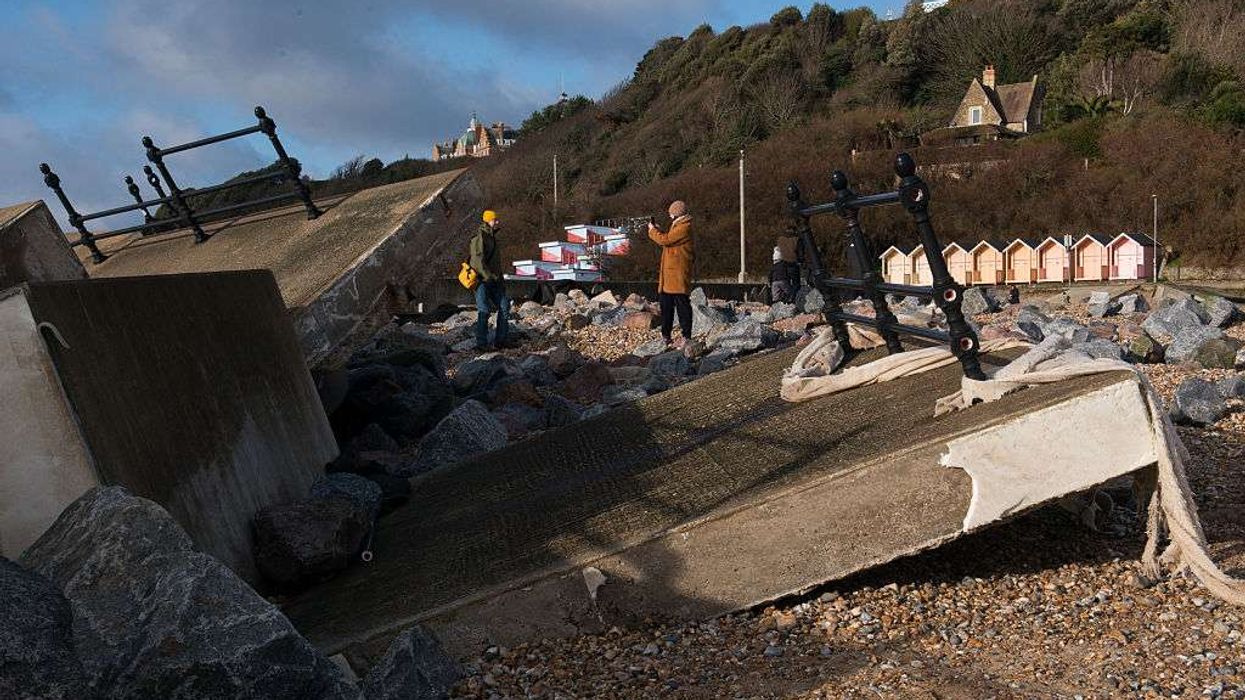In 1999, a court found a brother and mother guilty of murdering a 19-year-old Muslim woman. While he strangled her, their mother sat on her legs.
Her crime was to be carrying the baby of her childhood sweetheart while her husband, by forced marriage, was in Pakistan.
The story of Rukhsana Naz from Derby became infamous because it was the first so-called honour killing to be recognised by the British authorities.
I was the first journalist in the country to report on this barbaric practice, and it was the reason why I campaigned for the Forced Marriage Act 2007, despite a senior leader who told me off for not being impartial. It raises the question: how can you be impartial on murder?
Immediately after BBC East Midlands Today ran my backgrounder, the story which explained and analysed the case, I was told that a BBC Asian Network advisory council member had complained about my report. When I found out it was someone who had helped me in the past, I rang them up to ask how I had offended them.
“Look Barnie, I have nothing against you, but Inyat (not his real name), asked me to complain about you. You’re a Hindu and you shouldn’t have done this story. Inyat should have,” they said.
I was astounded. So, this was a manufactured campaign by one brown boy against another brown boy. No bother. I was confident in my reporting because I had asked 10 Muslim friends, some in the BBC, and some outside, including an imam, to “sense check” my backgrounder.
The evening of the hearing arrived. In front of a senior BBC governor, my colleague made his case which was that my report was unbalanced and showed Muslims in a negative light. But the worst crime was that I had used two words which were untrue and unacceptable: “practising Muslims”. I had dared to suggest that some Muslims do not practise their religion.
When it came to my turn to speak, I said that Inyat and I had known one another for over a decade, and we had enjoyed many meals in pubs. While I stuck to chicken and orange juice, he preferred bacon butties and beer. Aren’t pork and alcohol forbidden in Islam, I asked?
On that bombshell, a Muslim professor who was on the advisory council said calmly, “I have reviewed the two reports, and in my opinion, they are exemplary, and we should not shy away from the idea that Muslims, Hindus and Sikhs can do terrible things. We know crime happens in our communities. There is no case to answer.” Others thankfully agreed.
I tell this story because it is one tiny example of where the BBC is going wrong with diversity. It cannot compute that non-white folk are a non-homogenous group. They have their divisions, differences, and rivalries. Like an onion, there are layers within layers, and the more you cut into it, the more you’re in danger of crying through no fault of your own.
About the same time as the complaint, I saw one of the funniest comedy sketches to air on UK television. It was the wonderful Goodness Gracious Me quartet and their skit of the Coopers and the Robinsons. For those of you who don’t know, they are two Indian couples who are more British than the Brits. Their tone-perfect imperfections are apposite on so many levels. Each sketch shows how south Asians try so much to assimilate they deny what everyone else can see – they’re brown. They look down on their communities. They want the whites to love them so much that they can’t see the blatant racism they’re facing.
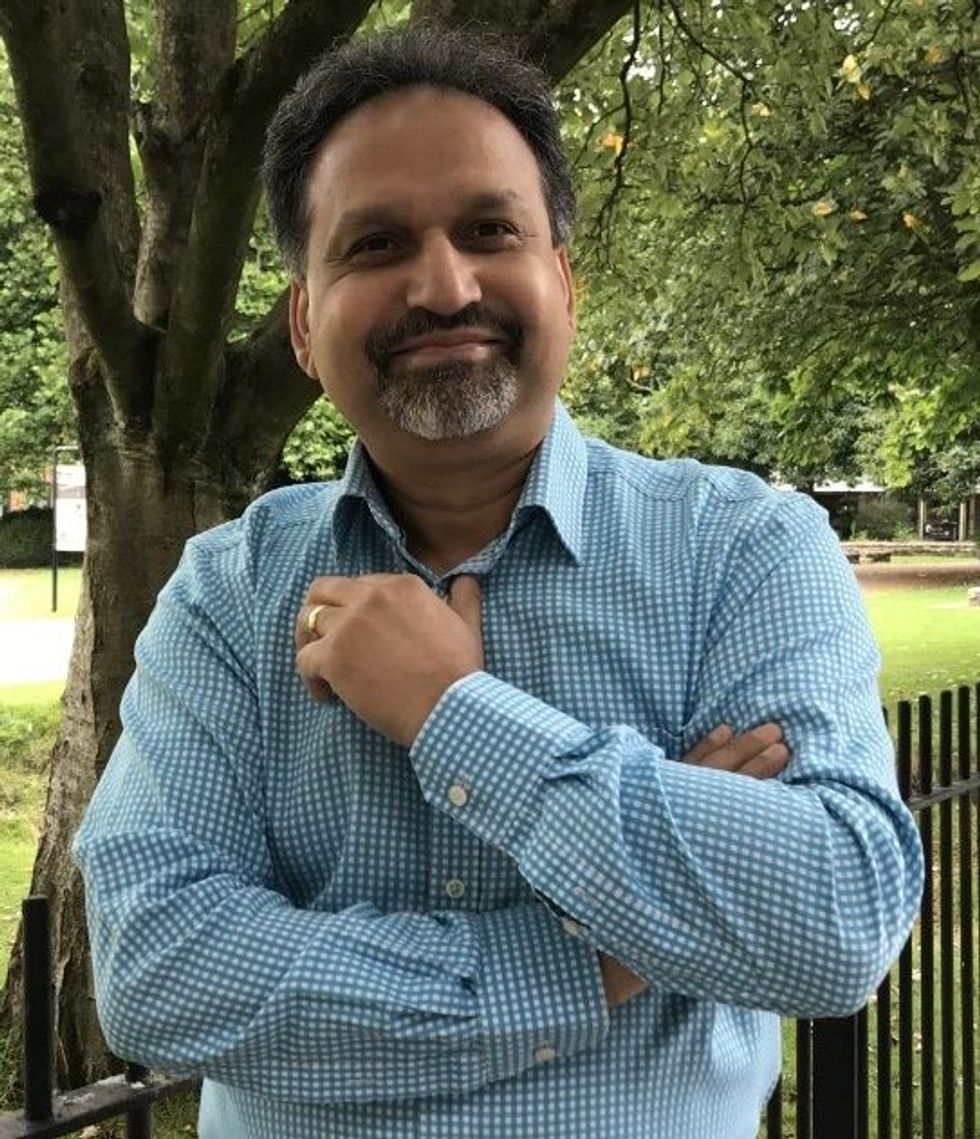
I have met many Coopers and Robinsons in my life, and sadly, several are in the BBC. Those who will not help another brown man or woman because they don’t want to be seen to be “one of them”. Those who will avoid talking to you or keep their distance in a formal or informal setting. And those who turn to you for help only when they are in trouble or need a huge favour, bringing out the “desi bhai-behen card”. And those who do their hardest to do-down their brown brothers and sisters. Forget black people – we brown people can’t stand them. Don’t you dare deny it. You know as well as I do, that BMW are the order in which some in our communities prefer to mix – no blacks, no Muslims, whites acceptable. They’re the people I label as having “the only Asian in the village with a laddering syndrome” (as in “pulling the ladder up behind me”).
I have seen so many non-white people in positions of power who have been too afraid of using their position to help brown and black staffers. Don’t get me wrong. There were honourable exceptions when I was there – Aaqil Ahmed and Mohit Bakaya spring to mind.
But after last week’s essay, several current BBC employees contacted me to say it still happens today. My honestly held opinion without malice is that the feeling of power, being the one in the room, is a heady aphrodisiac for those non-whites who the bosses make feel special.
Another of my honestly held beliefs is that people of colour in positions of power, in most organisations, are risk averse. They are more afraid of what their white bosses will think, and they are too busy keeping their seat at the top table, rather than helping their fellow non-white. I had a conversation with some. It went like this. “What if my appointment, who is south Asian, fails? How will it reflect on me and my career path? So, it’s better that I appoint in the corporate image. And you’re just being naïve, you know what pressure I’m under.” No word of a lie. Gobsmacked Choudhury.
But you can’t put the total blame on people of colour. No, white folk need to carry the burden of generations of shame. My problem is that I like to think I am pretty bright, pretty articulate and, unfortunately, pretty outspoken … and pretty brown. What I learnt about the BBC is that it wants diversity, it preaches diversity, but it doesn’t truly practise diversity.
Let us remember the senior editor who explained to me, “We know you can ace this job. But we think you’re a maverick who can’t take orders. Your problem is that you don’t know your place. Until you realise who’s in charge, you won’t get promoted.”
How about the senior leader who told me they would make sure I never progressed because I had the audacity to go above their head when they refused my suggestion to create a community/ethnic affairs correspondent. Six months later, when the BBC decided in the wake of the murder of Stephen Lawrence, it had neglected black and Asian audiences, that same person kept their word and didn’t appoint me. In their feedback one October morning in 1996, they took pleasure in letting me know that “if I had my way, you wouldn’t be in the BBC.”
Don’t forget the assignment editor who punished me because I took the initiative to ask an MP to help me get a visa for Pakistan when the high commission was refusing to issue journalists access during the Indo-Pak crisis of 2002. Thank goodness for Rod Liddle, then editor for Radio 4’s Today, who saw something in me and asked for me to “baby sit” the Delhi bureau.
This is important because, when a person of colour has the ingenuity to bypass obstacles in the BBC, but doesn’t clear it with their white bosses, it is career ending. While white colleagues would bend the rules, as we saw in the Cliff Richard privacy case, where the BBC had the pay the star millions of pounds in damages and court costs, they get promoted.
In his ruling, Mr Justice Mann, neatly summed up, with pinpoint, shrewd accuracy, my experience in the BBC. Sources tell me it still happens today. We all want that scoop, that ability to change lives for the better, that award even. But woe betide the journalist of colour who has the audacity not to follow orders and show enterprise.
After my “lapse”, the BBC world affairs department never allowed me to become a coveted permanent foreign correspondent. It was only the kindness of another white senior leader, Adrian van Klaveren, that I managed to get temporary foreign postings.
Then we have the senior leader who held a meeting, with another colleague holding his hand, to chastise me for taking time off for an illness where I was immobile and unable to get out of bed. During that meeting, they informed me that, “There’s something about you we don’t like.” I knew my days in the BBC were over, and I left within six months.
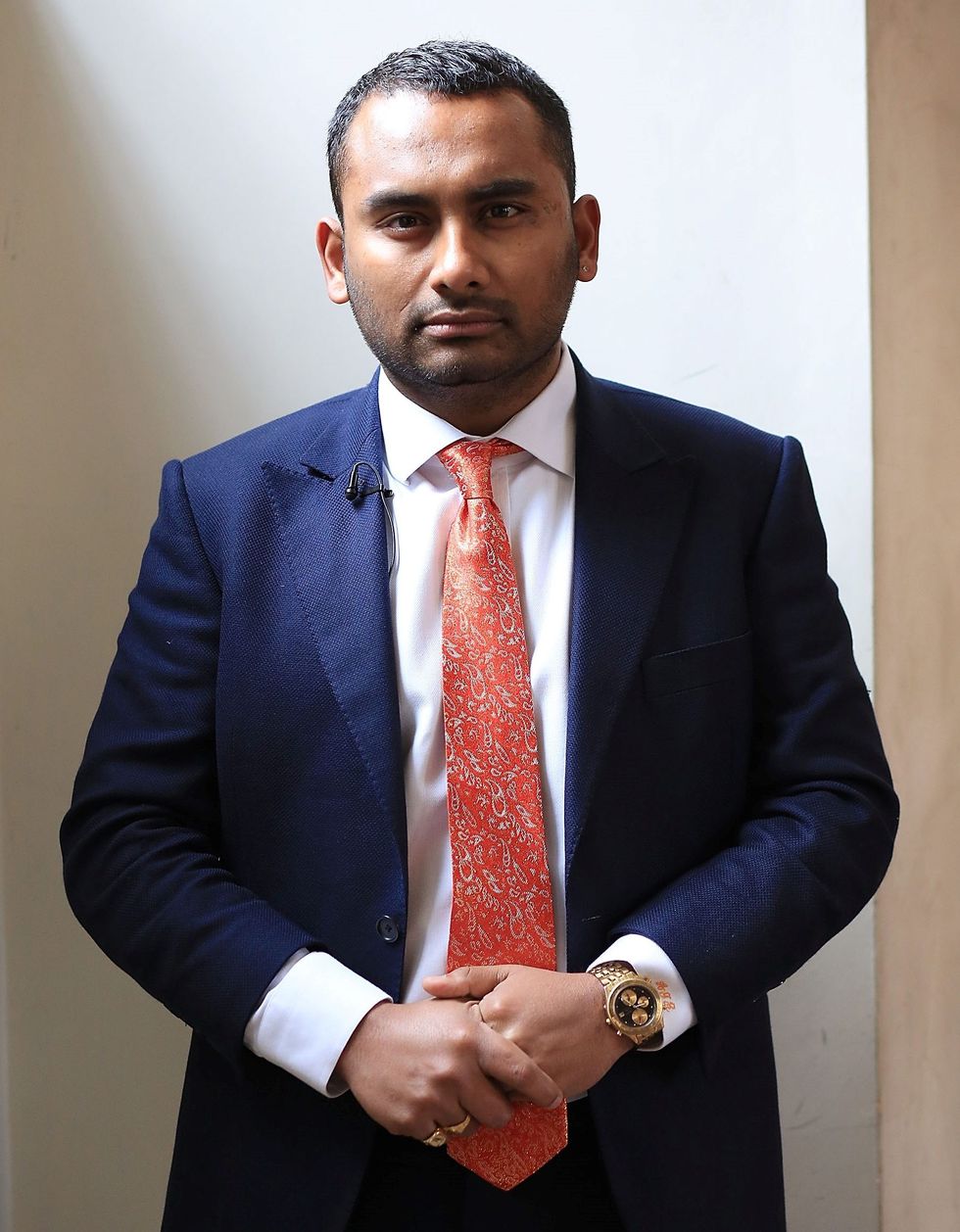
I, and others of colour, have more stories. But how do we know this is racism – or unconscious bias as the fashionable term is known – rather than someone taking against a person because they’re unlikable or have rubbed them up the wrong way? Because, like Azeem Rafiq and Yorkshire County Cricket Club, it happened more than once, to more than one person of colour, and there was a pattern.
When those of us of colour challenged authority, we were considered aggressive. When a white colleague, using expletives and a raised voice said they wouldn’t follow orders, it was put down to banter, and it is they who were placated. When we didn’t meet an impossible deadline, we were lazy and “just didn’t try hard enough”. When a white colleague came in with a hangover and couldn’t function, it would be laughed off. When we wanted time to attend a funeral we were questioned about our relationship to the deceased. When a white colleague wanted to go to the theatre in the middle of a shift, that was acceptable.
Britain is a great country. It, rightly, prides itself on fair play. But one of its weaknesses is the inability to understand, truly, people of colour. This doesn’t just apply to the BBC, but in every strata of society, no matter the white-led organisation.
So, what is the problem? The moment you enter the BBC, you are in a place where YOU need to conform to its rules and its way of thinking. Try to change it at your peril. The BBC will never change its fundamental core value – a monocultural organisation which sees things through the lens of colonialism and Empire. Despite all its progress, when it comes down to it, the white, middle class, male perspective will win. Look at its coverage of the war in Ukraine. Why did it take six days before it mentioned the plight of south Asian and African students who were being discriminated against? Erm, could it possibly be because this was a European, ergo white, war?
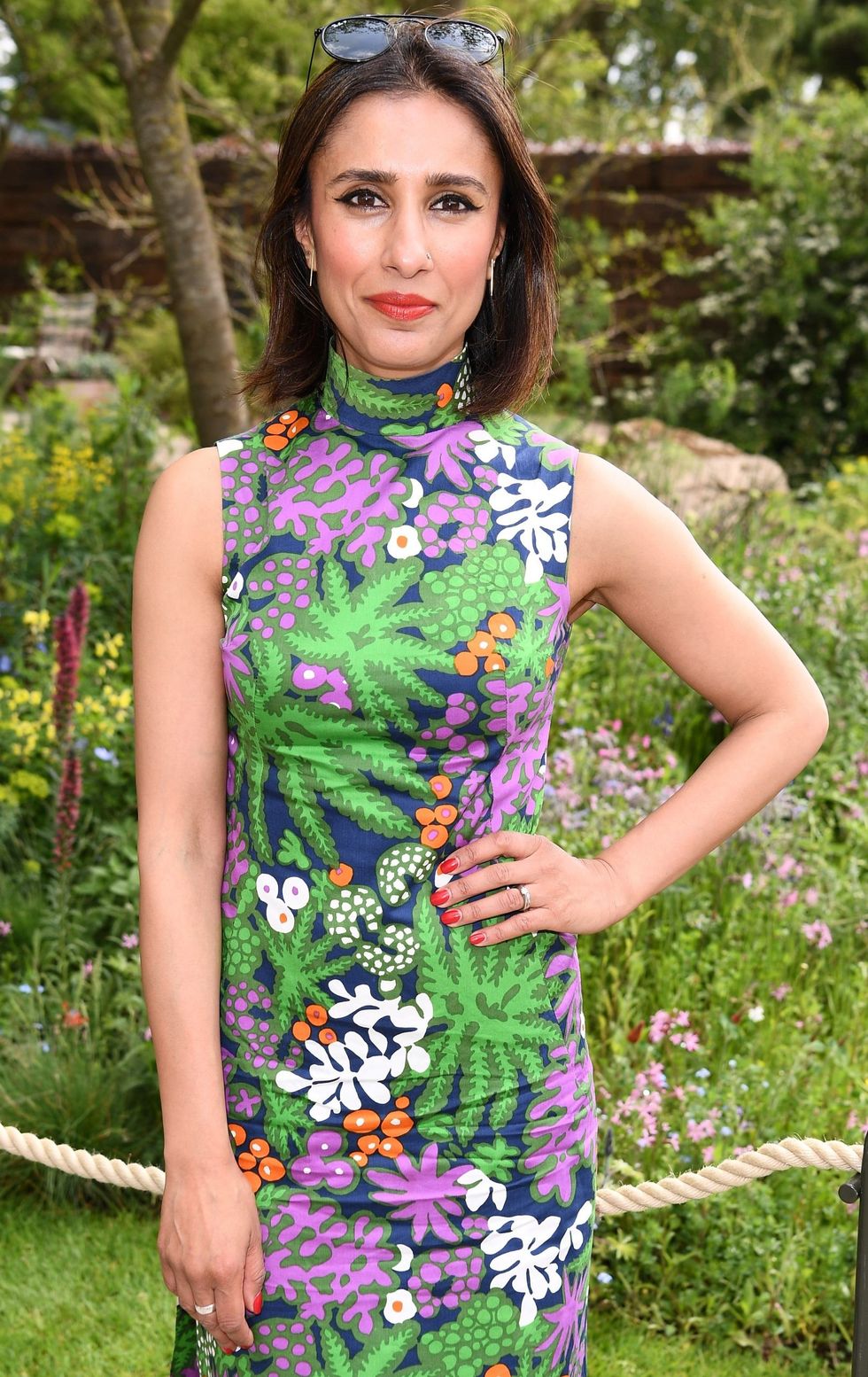
What the BBC suffers from is group think. What the BBC suffers from is latching onto one name and overexposing them. Today it is Clive’s [Myrie] turn. A few months ago, it was Amol’s [Rajan]. A few years ago, Anita Rani was the flavour of the month. Sure, they are hugely talented, but it is, in reality, window dressing.
What the BBC suffers from is the lack of non-white people in positions of real power – budgets and the ability to hire and fire. Even the Asian Network’s current news editor is non-Asian. What the BBC suffers from is the inability to be directed by people of colour who are astute, articulate, decisive and can challenge orthodoxy. All necessary traits for great leadership and a way to make a great organisation rather than one which is stagnant and prone to daily mistakes. I don’t believe the Naga Munchetty impartiality debacle or the “n-word” catastrophe would have happened if the BBC had people of colour at senior editorial levels.
I did an FOI [freedom of information] a few years ago, and I discovered that in a space of 15 years the BBC had almost 30 diversity initiatives. My experience is that the hideously white BBC goes around in circles. It has tried so hard to fix the problem. It has brought in diversity expert after diversity expert, and in reality, it has not shifted the dial enough. Why? Because it is doing the same things over and over again and expecting different results.
In 2001, the BBC ran something called “Ascend” for people with leadership potential, trying to increase ethnic minorities in senior posts. Seven years later, it began the “Mentoring Development Programme” – that same scheme and doomed to failure because the BBC is too arrogant to learn from its mistakes. I know because I was on both projects. That is telling. It means we have an organisation paid for by the public which does not have a clue what to do.
Unless you think the unthinkable, you won’t progress. Until you take risks, you won’t succeed. Until you realise that you didn’t fail 1000 times but learnt valuable lessons, you won’t triumph. Change happens when you are personally invested, and when that happens you move heaven and earth to get what you truly need. The BBC has no time to think or innovate because it is constantly firefighting.
Why am I such a critical friend? Because I want the BBC to not only survive but to flourish. In my mind the 44p I pay per day is so cheap, I have a second licence. To this day, I am in awe of what I call the best news organisation in the world, with teams of heroes who risk their lives to tell truth to power and ensure that nations shall speak peace unto nations. No, this country would be the poorer without the BBC. But it needs to change.
The fundamental problem with the BBC is that its leaders at the very top get it. They know the corporation won’t survive without some fundamental changes. They get it at the bottom echelons. They are chasing their dreams, until it turns into a mirage, but until then they will do anything asked of them to succeed. It is the gatekeepers in the middle, some of whom are the problem. They will never take risks. They will recruit in their own image. They will hire those who are likely to be “safe pairs of hands”. And they will appoint those who think, act and decide as they do.
Until the BBC understands that every organisation needs mavericks, disruptors and risk takers, nothing will change. They will be doomed to repeat the same mistakes for generations. And they’ll be asking that age-old question: why aren’t we diverse?
Read Part 1: https://www.easterneye.biz/why-is-the-bbc-failing-when-it-comes-to-diversity/
Next week, in his final essay, Barnie offers some ideas which may help shift the BBC’s dial on diversity.
